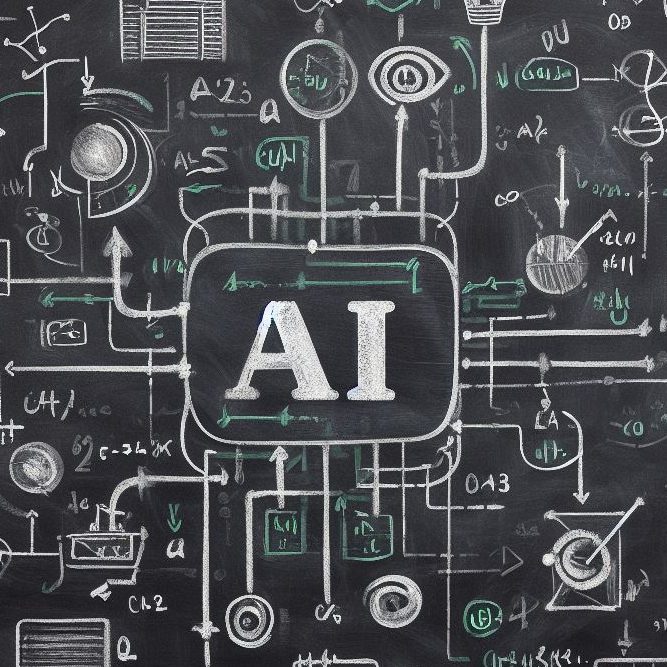Artificial Intelligence (AI) has made significant strides in various sectors, and healthcare is no exception. The integration of AI technologies is reshaping how healthcare providers deliver care, improving patient outcomes, and making processes more efficient. As technology evolves, understanding the 10 benefits of Artificial Intelligence in healthcare becomes crucial for students, professionals, and anyone interested in the future of medicine. In this article, we’ll explore the 10 benefits of Artificial Intelligence in healthcare and how these advancements are impacting the field.
Enhanced Diagnostics
Increasing Accuracy in Diagnoses
AI algorithms can analyze complex medical data faster and more accurately than traditional methods. Machine learning models trained on vast datasets can identify patterns that may elude human analysts. For instance, AI technologies have demonstrated effectiveness in detecting diseases like cancer, often at earlier stages than conventional diagnostic methods can. This early detection allows for timely interventions, improving patient prognosis significantly.
Reducing Diagnostic Errors
Human error can lead to misdiagnoses with serious consequences. AI-driven diagnostic tools minimize these risks by providing data-backed insights. Aiding healthcare professionals in identifying symptoms and suggesting possible conditions enables a more precise diagnostic journey. As a result, patients receive appropriate treatments quicker, ensuring better health outcomes.

Personalized Treatment Plans
Tailoring to Individual Needs
One-size-fits-all approaches to treatment often fail to deliver optimal results. AI allows for the creation of personalized medicine by analyzing genetic information, lifestyle factors, and patient history. For instance, AI can recommend customized drug dosages based on a patient’s unique metabolic profile. This level of personalization leads to more effective therapies and improved adherence to treatment plans.
Continuous Monitoring and Adjustment
AI systems can continually analyze a patient’s response to treatments and adjust plans accordingly. With wearables that monitor vital signs and report data in real time, healthcare providers can promptly alter treatment regimens as needed. This continuous feedback loop fosters proactive healthcare instead of reactive approaches, ultimately enhancing care quality.
Operational Efficiency
Streamlining Administrative Tasks
Healthcare facilities often grapple with administrative burdens that take away from patient care. AI aids in automating repetitive tasks such as appointment scheduling, billing, and record-keeping. With chatbots and virtual assistants handling patient inquiries and administrative duties, healthcare staff can refocus their efforts on providing care rather than dealing with paperwork.
Optimizing Resource Allocation
AI can analyze patient data and predict demand for services, enabling better resource management. For example, hospitals can use AI to forecast patient admissions, helping them optimize staffing levels and manage inventory more effectively. This efficiency reduces operational costs while improving service delivery 10 benefits of Artificial Intelligence in healthcare systems.

Drug Discovery and Development
Accelerating Research and Trials
The process of developing new medications can take years and cost billions. AI dramatically speeds up drug discovery by analyzing biological data and predicting how different compounds will interact. Machine learning models can identify promising candidates more quickly, shortening the time from bench to bedside.
Identifying Adverse Effects
AI can also monitor data from clinical trials to identify potential adverse effects faster. By analyzing patient reports and feedback in real time, researchers can make informed decisions about a drug’s safety and efficacy. This capability not only enhances patient safety but also reinforces regulatory compliance.
Telemedicine Enhancements
Facilitating Remote Consultations
The rise of telemedicine has been accelerated by the capabilities of AI. Virtual consultations enable patients to receive care without the need for physical travel, improving access, particularly for those in rural areas. AI-powered chatbots can handle preliminary assessments, collect patient histories, and triage cases, helping healthcare providers prioritize care effectively.
Improving Patient Engagement
AI can help increase patient engagement by offering personalized health information and interactive tools. For instance, applications that provide reminders for medication adherence or health tips tailored to individual needs motivate patients to take charge of their health and contribute to better outcomes.
Predictive Analytics
Anticipating Health Trends
AI uses predictive analytics to analyze data and identify trends that may indicate future health issues. For example, data from electronic health records can pinpoint populations at risk for chronic diseases, enabling early interventions. Healthcare providers can proactively manage high-risk patients, minimizing complications and improving long-term health.
Enhancing Population Health Management
By recognizing patterns in large datasets, healthcare systems can develop more effective population health strategies. AI helps organizations address healthcare disparities by targeting resources where they’re needed most. With informed decision-making, providers can tailor public health initiatives to improve overall community health.
Improved Patient Monitoring
Utilizing Wearable Technology
Wearable devices equipped with AI technology allow for continuous health monitoring. These devices track vital signs, activity levels, and other metrics, providing healthcare providers with real-time data. This information aids early identification of potential health issues, enabling timely interventions and reducing hospitalizations.
Enhancing Chronic Disease Management
AI plays a crucial role in managing chronic diseases, like diabetes or heart conditions. By analyzing data from monitoring devices, AI can provide insights into a patient’s daily condition, helping adjust treatment plans to ensure optimal health. This approach promotes more effective management of chronic disorders and leads to better quality of life for patients.

Enhanced Communication
Facilitating Doctor-Patient Interactions
Effective communication is vital in patient care. AI supports improved interactions by automating routine communications between healthcare providers and patients. Tools like chatbots can answer common questions, schedule appointments, and follow up on treatment plans, making it easier for patients to stay informed about their healthcare.
Strengthening Interdisciplinary Collaboration
AI enhances communication within healthcare teams as well. By providing a centralized platform for sharing patient information, AI ensures that all team members have access to the same data. This shared understanding fosters better collaboration among specialists and primary care providers, leading to coordinated and comprehensive care for patients.
Cost Reduction
Lowering Healthcare Expenses
By improving efficiency and reducing errors, AI can significantly lower healthcare costs. Automation of routine tasks minimizes administration overhead, while predictive analytics can lead to early interventions that prevent costly emergency care. As healthcare providers streamline operations and enhance clinical outcomes, patients benefit from reduced costs for services.
Increasing Accessibility to Care
As AI technology becomes more integrated into healthcare systems, it allows providers to offer lower-cost services. Telemedicine supported by AI reduces logistical barriers, making healthcare more affordable and accessible. Patients who might have previously avoided care due to transportation or financial constraints can now receive the help they need.
Ethical Considerations and Challenges
While the benefits of AI in healthcare are significant, ethical considerations are essential. Patient privacy, data security, and the potential for bias in AI algorithms must be addressed. Ethical guidelines and regulatory frameworks should guide the development and deployment of AI technologies in healthcare to ensure that they serve all patients effectively and fairly.
Ensuring Continuous Oversight
As AI systems evolve, continuous oversight is required to assess their effectiveness and address any emerging concerns. Ongoing collaboration between technology developers, healthcare providers, and regulatory bodies is crucial in adapting to the fast-paced advancements of AI in healthcare. Proactive oversight will help ensure that the benefits of AI are harnessed while minimizing the risks.
Embracing the Future of Healthcare
Artificial Intelligence is rapidly transforming the healthcare landscape, offering numerous benefits that enhance patient care, improve operational efficiency, and reduce costs. From improved diagnostics to personalized treatment plans, AI technologies are making healthcare smarter and more effective.
As we embrace these innovations, it’s vital to remain mindful of ethical implications and maintain oversight in AI deployment. With careful management and collaboration among stakeholders, the healthcare looks bright, powered by the promise of artificial intelligence. By integrating these cutting-edge technologies, we can pave the way for a healthier, more efficient world where everyone has access to quality care.


